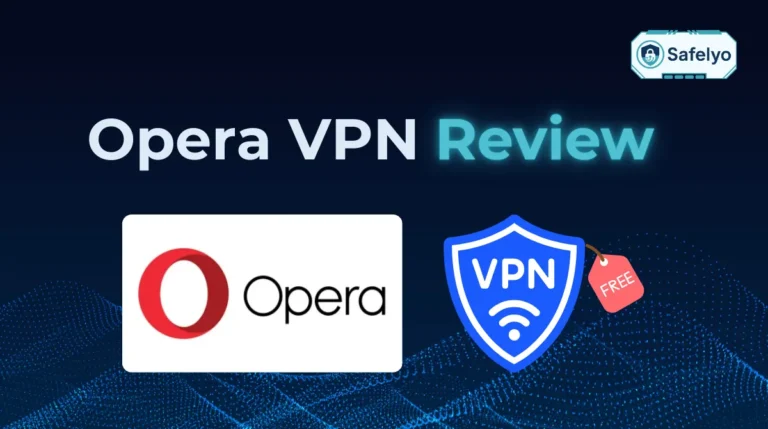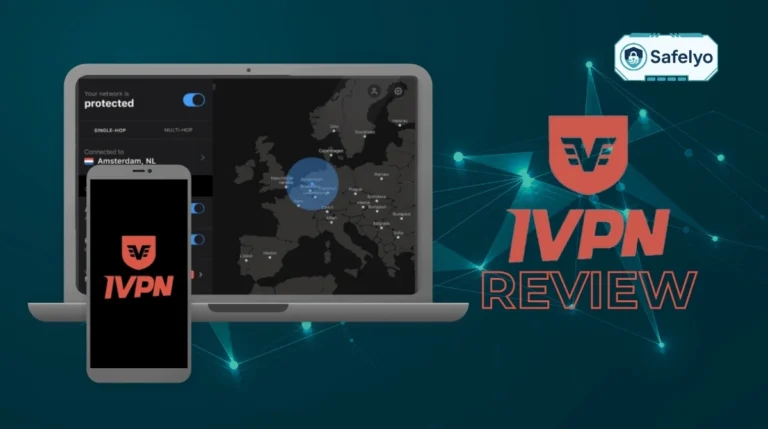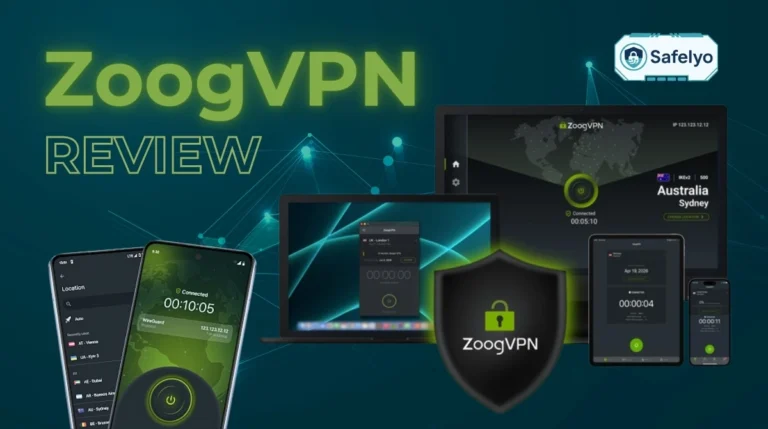This isn’t a typical Urban VPN review. It’s a critical security warning. If you’re considering installing this “100% free” VPN, we urge you to stop and read this first. What promises to be a free tool could end up costing you your personal data, your privacy, and even your digital safety.
The core of the problem lies in its dangerous business model. Urban VPN operates on a peer-to-peer (P2P) network, a system notoriously used by the infamous Hola VPN. This means when you use their service, you are simultaneously agreeing to let strangers use your computer’s internet connection and your personal IP address.
As a cybersecurity analyst at Safelyo, I’ve reviewed countless VPNs. Most “bad” services are simply slow or ineffective. Urban VPN is fundamentally different – its very design is a threat to its users. It’s not a tool with pros and cons; it’s a liability.
CRITICAL UPDATE: AI DATA THEFT
A Dec 15, 2025 investigation by Koi Research confirmed that Urban VPN has been harvesting and selling your private AI conversations since July 2025. They collect your data from platforms like ChatGPT and Gemini even when the extension is disabled.
We strongly recommend avoiding this service. If you currently have it installed, please read the “What to do if you are currently using Urban VPN” section below.
In this investigation, we will expose:
- The dangerous peer-to-peer (P2P) model and how it puts you at legal risk.
- It’s an invasive privacy policy and the shocking amount of data it collects.
- Alarming community reports of malware hidden in its installer.
- Genuinely safe and truly free alternatives that you can trust.
Don’t gamble with your digital safety for the illusion of ‘free’. Let me show you the truth behind this service and guide you toward the protection you can actually count on.
VPN Score:
1.0 / 10
A Dangerous Service to Avoid at All Costs
Urban VPN feature table
| Feature Name | Details |
| Peer-to-Peer (P2P) Network | This is not a feature but a core risk. Urban VPN does not use its own secure servers. Instead, it routes your traffic through other users’ devices and allows others to use your IP address, exposing you to legal and security dangers. |
| Data Logging Policy | Instead of a no-logs policy, Urban VPN has an invasive data collection policy. It openly admits to logging your IP address, browsing history, and device identifiers, which it can share or sell to third parties. |
| OpenVPN Protocol | While it claims to use the OpenVPN protocol, this is rendered insecure by the complete lack of a kill switch. A single connection drop will expose your real IP address, defeating the purpose of the encryption protocol. |
| Browser Extension “Features” | The browser extensions include an ad-blocker and an anti-phishing tool. However, these minor additions do not compensate for the fundamental security flaws of the core service and its data-logging practices. |
BEST FOR:
Urban VPN is not recommended for any purpose or any user.
Its business model is fundamentally opposed to the principles of digital privacy and security.
- For casual users seeking to unblock content, the service is slow, unreliable, and exposes them to invasive data collection.
- For privacy-conscious individuals, the data logging and P2P network are a nightmare, doing the exact opposite of what a VPN should.
- For users concerned about security, the lack of a kill switch and reports of malware make it an active threat to their devices.
In short, there is no scenario where the risks associated with Urban VPN are worth the “free” price tag. It is best for no one.
1. The verdict upfront: A public service warning
In my years of analyzing cybersecurity tools, I’ve learned to distinguish between a product that’s simply bad and one that is actively dangerous. Urban VPN falls squarely, and alarmingly, into the dangerous category. Let’s not waste any time with pros and cons.
So, here is our final verdict, placed right at the beginning for maximum clarity. Safelyo cannot recommend this service under any circumstances.
Urban VPN: SAFELYO’S OFFICIAL WARNING
Overall Rating: 1.0 / 10 (Dangerously Unsafe)
Do not install this software. We will show you genuinely safe alternatives further down.
Urban VPN is a privacy hazard masquerading as a free tool. Its peer-to-peer model, invasive data collection, and absolute lack of basic security features make it a significant threat that should be avoided at all costs.
Critical Red Flags:
- Shares your IP address with other users through its P2P network, putting you at risk for others’ online activities.
- Logs and collects extensive personal data, including your real IP address and browsing activity, defeating the entire purpose of a VPN.
- Lacks a kill switch, the most fundamental safety net that protects your identity if the VPN connection drops.
- Widespread community reports of the installer being flagged as malware or a Potentially Unwanted Program (PUP) by antivirus software.
2. How can Urban VPN be free?
There’s a well-known saying in the tech world: “If you’re not paying for the product, you are the product.” This is one of the most important lessons when evaluating the dangers of free VPN services. In Urban VPN’s case, you aren’t just the product – you are also part of the infrastructure.
They cut costs and make money in two primary ways, both of which put you directly at risk.
2.1. The P2P network: You are the product and the server
The main reason Urban VPN can offer a vast network for free is simple: it doesn’t own one. The Urban VPN P2P network is built on the devices of its users. When you install and connect to their service, you agree to let other people around the world use a portion of your internet bandwidth and your personal IP address. In essence, your computer becomes a server for other Urban VPN users.
When explaining this to friends and family, I often use this analogy: This is like letting a complete stranger borrow your car and your driver’s license. If they speed, run a red light, or get into an accident, the police aren’t looking for the stranger – they’re knocking on your door, because your name and address are on the registration. Your IP address is your digital license plate, and Urban VPN hands it over to anyone.
What could a stranger do with your IP address?
- Post threats on social media: They could post illegal threats or hate speech online, and digital forensics would trace it directly back to you.
- Download illegal content: They could use your connection to illegally download copyrighted movies or sensitive materials, making you the target of legal action from copyright holders.
- Access dark web markets: Your IP address could be the gateway for someone to buy or sell illegal goods, putting your entire internet history under investigation.
This model is a fundamental betrayal of what a VPN is supposed to do, which is to protect your identity, not lend it to others.
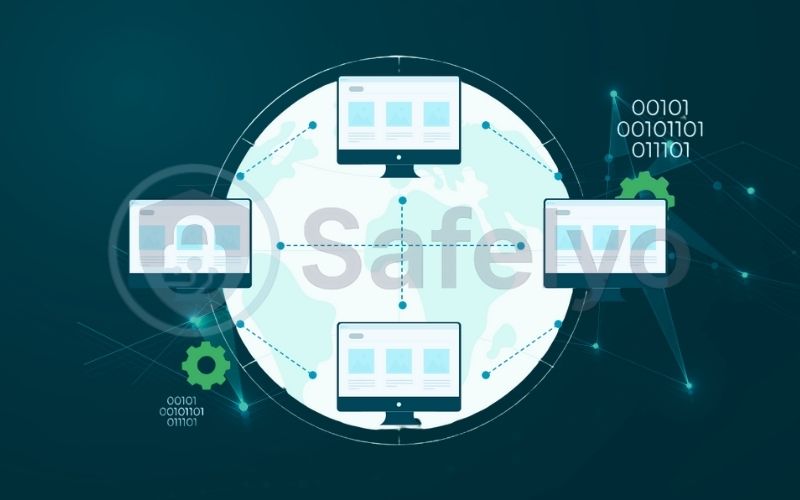
2.2. Data collection for profit
The second part of their business model is Urban VPN data collection. Their privacy policy is quite open about the fact that they collect user data. While they claim it is “anonymized,” true anonymization is incredibly difficult, and they admit to collecting information like your IP address, browser type, and web browsing activity.
This collected data is then bundled and sold to third-party companies for things like market research and data analysis. So, while you browse, they are profiting from your behavior. You are paying for the service with your privacy.
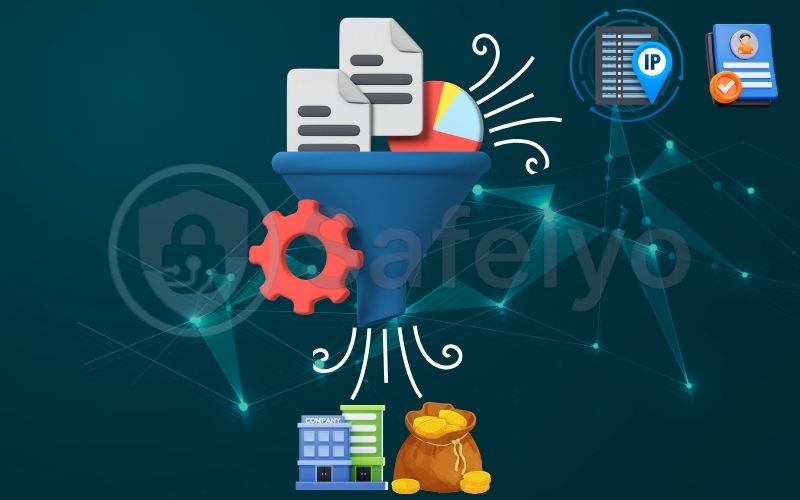
2.3. A familiar danger: The Hola VPN model revisited
If this peer-to-peer model sounds disturbingly familiar, it should. This is the exact same dangerous architecture used by Hola VPN, a service that was famously caught selling its users’ collective bandwidth to be used as a commercial botnet.
Essentially, paying customers could use the network of “free” Hola users to launch cyberattacks or other malicious activities. Urban VPN is following the same risky playbook, putting its users in the exact same vulnerable position. It’s not an innovation; it’s a known vulnerability being repackaged for a new audience.
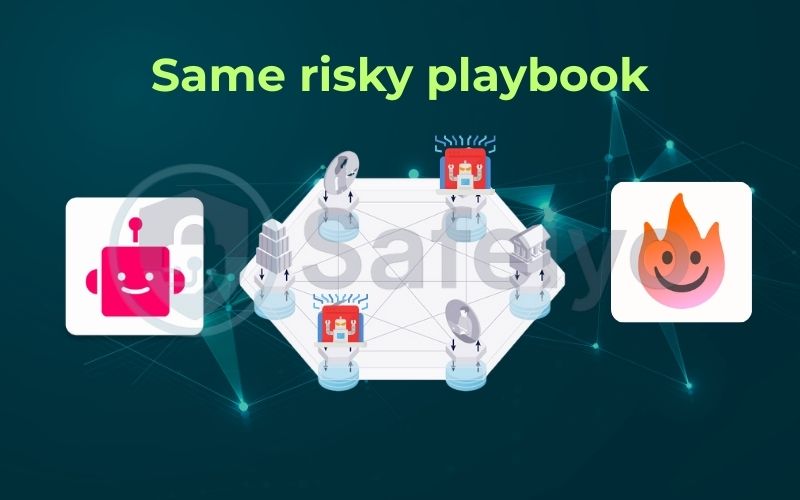
3. The red flag checklist: A deep dive into the dangers
If the business model makes you uncomfortable, the technical details should set off alarm bells. As I investigated Urban VPN, I compiled a list of non-negotiable failures. These aren’t minor flaws; they are critical security risks that make the software fundamentally unsafe.
3.1. Red flag #1: The invasive privacy policy
A VPN’s privacy policy is its most sacred promise to you. For a trustworthy VPN, this document guarantees that your online activity is your own. For Urban VPN, it’s a confession of its data harvesting operation.
You don’t have to take our word for it. Their own Urban VPN privacy policy openly states they collect: “online identifiers, IP address… information about your web browsing activity.”
Let’s be perfectly clear: This is the exact opposite of what a privacy-focused VPN should do. The primary reason to use a VPN is to hide your IP address and prevent your browsing activity from being monitored. The Urban VPN logging policy confirms they do both, completely voiding any claim of privacy. It’s like hiring a security guard who promises not to watch you, but then admits to filming your every move and selling the tapes.
3.2. Red flag #2: Missing essential security features
Beyond the policy, the software itself is missing the most basic safety nets. The most glaring omission is a kill switch.
Think of a kill switch as the emergency brake for your data. If your VPN connection unexpectedly drops – which happens with unreliable services – a kill switch instantly cuts off your internet access. This prevents your real IP address from being exposed to your internet provider and the websites you’re visiting.
Without a kill switch, if your Urban VPN connection fails for even a fraction of a second, your real identity is revealed. It completely defeats the purpose of using the service. In my experience, any VPN provider that doesn’t include a kill switch isn’t serious about security. It’s a non-negotiable feature, not a luxury.
3.3. Red flag #3: Community reports of malware and viruses
If the technical design flaws weren’t enough, the experiences of actual users paint an even grimmer picture. A quick search on public forums like Reddit or review sites like Trustpilot reveals a disturbing pattern of complaints related to Urban VPN virus and Urban VPN malware infections.
Here’s what users frequently report:
- Their trusted antivirus software (like Bitdefender, Malwarebytes, or Windows Defender) flags the Urban VPN installer as a trojan, adware, or a Potentially Unwanted Program (PUP).
- Their computers slow down drastically immediately after installation, a common symptom of hidden malicious processes running in the background.
As a security analyst, I’ve learned to respect these patterns. Where there’s this much smoke, it’s unsafe to assume there’s no fire. The sheer volume of these reports suggests that the installer may be bundled with more than just a VPN client. You might be getting a “free” VPN, but it could come with a side of spyware or data-leaking adware.
4. Performance test: Adding insult to injury
Okay, let’s set aside the critical security flaws for a moment. Let’s pretend you’re willing to risk your IP address and data. Does Urban VPN at least deliver a decent user experience in return?
To find out, I ran a series of hands-on speed and streaming tests from my US location with a baseline internet connection of 100 Mbps. The results, frankly, add insult to injury.
The speed performance was nothing short of catastrophic. Connecting to any Urban VPN server resulted in a massive drop in performance, making most online activities frustratingly slow.
Speed Test Results (100 Mbps Baseline)
| Server Location | Ping | Download Speed | Upload Speed | Speed Drop (Download) |
|---|---|---|---|---|
| No VPN | 15 ms | 98.5 Mbps | 52.1 Mbps | – |
| US (Nearby) | 112 ms | 21.3 Mbps | 10.5 Mbps | -78% |
| UK (Distant) | 205 ms | 8.9 Mbps | 2.1 Mbps | -91% |
| Australia | 350 ms+ | 3.2 Mbps | 0.8 Mbps | -97% |
As the results clearly show, connecting to a nearby US server immediately wiped out over 78% of my download speed. The connection to the UK server was even worse, with a staggering 91% drop. At these speeds, even simple HD YouTube videos buffered endlessly, and high-resolution images on websites took ages to load. It felt like a throwback to an old dial-up connection.
But what about its ability to unblock content for streaming? A VPN’s performance isn’t just about speed, but also its effectiveness.
Streaming Platform Test Results (Connected to US Server)
| Streaming Service | Accessed Successfully? | Experience |
| Netflix (US) | No | Instantly detected VPN and showed an error. |
| Amazon Prime | No | Blocked from streaming any content. |
| Disney+ | No | Failed to load past the login screen. |
| Hulu | No | Detected VPN proxy and denied access. |
The results were completely unambiguous. Urban VPN failed to unblock a single major streaming service. In nearly every test, the platform detected the VPN and blocked access immediately.
Ultimately, Urban VPN doesn’t even succeed at being a functional tool. It fails as a security product, and it fails spectacularly as a performance product. You’re not just taking a massive risk for a “free” service; you’re taking that risk for a bad one.
5. Safe alternatives: How to get a free VPN without the risk
After everything we’ve uncovered about Urban VPN, it’s natural to be wary of any service that calls itself “free.” The good news is that not all free VPNs operate on a dangerous, user-exploiting model. Some reputable providers offer free plans as a secure entry point to their services.
Finding a safe Urban VPN alternative means looking for a service with a transparent and honest business model. Here are the free VPNs that my team at Safelyo and I personally trust and recommend.
5.1. Our top recommended safe & free VPNs
1. Proton VPN Free
In my opinion, Proton VPN offers the best free VPN plan on the market, period. It’s operated by the same team behind ProtonMail, a world-renowned encrypted email service, and their commitment to privacy is second to none.
- Truly Unlimited Data: This is its biggest advantage. You can browse securely without ever worrying about hitting a data cap.
- Audited No-Logs Policy: ProtonVPN has undergone independent security audits that verify its promise not to log your online activity.
- Based in Switzerland: The service is protected by some of the world’s strongest privacy laws.
- No Ads, No Gimmicks: The free service is supported by its paying users, so they have no incentive to track you or sell your data.
>> Want to learn more? Dive into our full Proton VPN review for a detailed analysis of its features and performance.
2. Windscribe Free
Windscribe is another excellent choice that I often suggest to people who need access to more server locations. While its data is capped, the limit is generous and the security is top-notch.
- Generous 10GB of Free Data per Month: This is more than enough for regular browsing, checking emails, and secure public Wi-Fi use.
- Access to More Server Locations: The free plan gives you access to servers in over 10 countries, which is more than most free competitors.
- Strong Security Features: It comes with solid encryption and a built-in ad and tracker blocker, which is a fantastic bonus for a free plan.
>> Is it right for you? Check out our complete Windscribe review to see how it stacks up in our tests.
5.2. Why these free VPNs are different and safer
The crucial difference lies in their business model. It’s called “freemium.”
Services like Proton VPN and Windscribe offer a limited but safe free version as a gateway to their premium, paid plans. Their goal is to convince you of their quality so that you’ll eventually choose to upgrade.
- They make money from paying customers, not free users. They don’t need to sell your data or rent out your IP address because their business is sustained by subscriptions.
- Their reputation is their most valuable asset. Betraying the trust of their free users would destroy their entire business, as no one would ever pay for their premium services.
- You are treated as a potential customer, not as the product.
Choosing one of these services isn’t just about getting a free VPN – it’s about choosing a company that fundamentally respects your privacy from the very start.
6. What to do if you are currently using Urban VPN
If you have any of the following extensions installed, we strongly recommend that you remove them immediately:
- Urban VPN Proxy
- Urban Browser Guard
- Urban Ad Blocker
- 1ClickVPN Proxy
It is safest to assume that any AI conversations you have had since July 2025 have been captured and shared with third parties.
The investigation by Koi Research confirms that these extensions continue to collect data even when they appear to be turned off. We suggest following these step-by-step instructions to secure your digital footprint.
6.1. Uninstall the extension
Do not just disable the extension. The malicious code can still run in the background. We advise completely removing it from your browser.
- For Chrome: Right-click the extension icon in your toolbar and select Remove from Chrome.
- For Edge: Right-click the icon and select Remove from Microsoft Edge.
- For Desktop: If you installed the Windows or Mac desktop application, use your operating system’s “Add or Remove Programs” feature to uninstall it completely.
For a detailed walkthrough with screenshots for every device, please refer to our full guide: How to off Urban VPN in 10 min: Easy removal on all devices
6.2. Purge your browser data
After uninstalling, it is good practice to remove any tracking cookies or cache files that the data brokers may have left behind.
- Go to your browser settings.
- Navigate to Privacy and security (naming may vary slightly across browsers).
- Select Clear browsing data.
- Ensure you select “Cookies and other site data” and “Cached images and files” for the time range All time.
6.3. Change passwords for AI platforms
Since Urban VPN was harvesting session data from AI platforms, your accounts on these services may be compromised.
- Log out of all active sessions for ChatGPT, Claude, Gemini, and Perplexity.
- Log back in and change your passwords.
- Enable Two-Factor Authentication (2FA) if you have not done so already.
6.4. Run a malware scan
Community reports and previous investigations suggest that P2P VPNs often bundle unwanted software or malware with their installers.
We recommend running a full system scan using a reputable antivirus or anti-malware tool (such as Malwarebytes or Microsoft Defender) to ensure no hidden miners or scripts remain on your device.
6.5. Monitor your accounts
If you used this VPN while logging into sensitive accounts like online banking or email, we suggest treating those credentials as potentially compromised. Update those passwords and monitor your bank statements for any unusual activity.
6.6. Switch to a trusted VPN
Privacy is essential, but “free” often comes at a high cost. If you need to change your IP address or encrypt your traffic, choose a provider that has a verified no-logs policy and has been audited by independent security firms. See our recommendations for the Best VPN.
7. FAQ about Urban VPN
We know there are still lingering questions about this service. To provide complete clarity, here are direct answers to the most common queries we’ve received about Urban VPN.
Is Urban VPN safe?
No, Urban VPN is not safe. Its peer-to-peer (P2P) network exposes your personal IP address to legal risks by allowing strangers to use it. Furthermore, it lacks essential security features like a kill switch, making it a dangerous choice.
Is Urban VPN trustworthy?
No, Urban VPN is not trustworthy. Its privacy policy openly confirms that it collects user data, including your IP address and browsing history. A trustworthy VPN’s primary mission is to protect this data, not collect and potentially monetize it.
Is Urban VPN a virus?
While not a virus in the traditional sense, its installer has been flagged by multiple antivirus programs for containing malware or Potentially Unwanted Programs (PUPs). Its behavior of collecting data and using your computer’s resources without your full understanding is inherently harmful.
Is Urban VPN a honeypot?
A honeypot is technically a trap set for cyber attackers. While Urban VPN may not fit that exact definition, it effectively acts as a privacy trap for users. It lures you in with the promise of a “free” service, only to harvest your data and use your bandwidth for its own purposes.
How much does Urban VPN cost?
Urban VPN is free to install, but you pay a hidden price with your privacy and security. The real cost is the exposure of your IP address, the collection of your personal data, and the significant risk of malware.
How long can I use Urban VPN?
You can use the free service indefinitely, but we strongly advise against it. Every moment you are connected, you are putting your digital identity and device at risk.
What is Urban VPN used for?
It claims to be for unblocking content and providing anonymity. However, our tests show it fails at reliably unblocking streaming services and, more importantly, it does the opposite of providing anonymity by logging your data and sharing your IP.
What is the Urban VPN review 2025?
Our Urban VPN review for 2025 concludes that it is a dangerously unsafe service that must be avoided. The combination of its P2P model, data logging, and lack of security makes it a significant threat to any user.
What is the best free alternative to Urban VPN?
The best and safest free alternative is ProtonVPN. It offers unlimited data, is based in a privacy-friendly country (Switzerland), and operates under a strict, independently audited no-logs policy.
8. Conclusion
To conclude our Urban VPN review, the verdict is not a matter of weighing pros and cons – it is absolute. This service is a security liability that poses a direct threat to the privacy and safety of anyone who installs it. It fundamentally betrays the core promise of what a VPN should be.
Remember these critical takeaways from our investigation:
- It operates on a dangerous P2P network, lending your personal IP address to strangers.
- It has an invasive logging policy, collecting the very data a VPN is meant to protect.
- It lacks a kill switch, leaving your identity exposed during connection drops.
- It fails as a functional tool, with abysmal speeds and widespread reports of malware.
Your online safety is worth more than the illusion of “free.” Do not install Urban VPN. To truly protect your privacy without compromise, trust the experts at Safelyo. Explore our VPN Reviews category to find a service that is vetted, secure, and actually respects you as a user.

